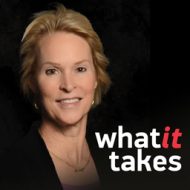Look at the biological world. Here is the most beautiful, intricate, functional, capable set of engineering things that have ever been devised. And it was all devised by the biological world, by evolution — not by human beings, not by human engineers. And I said, ‘I want to engineer that.’
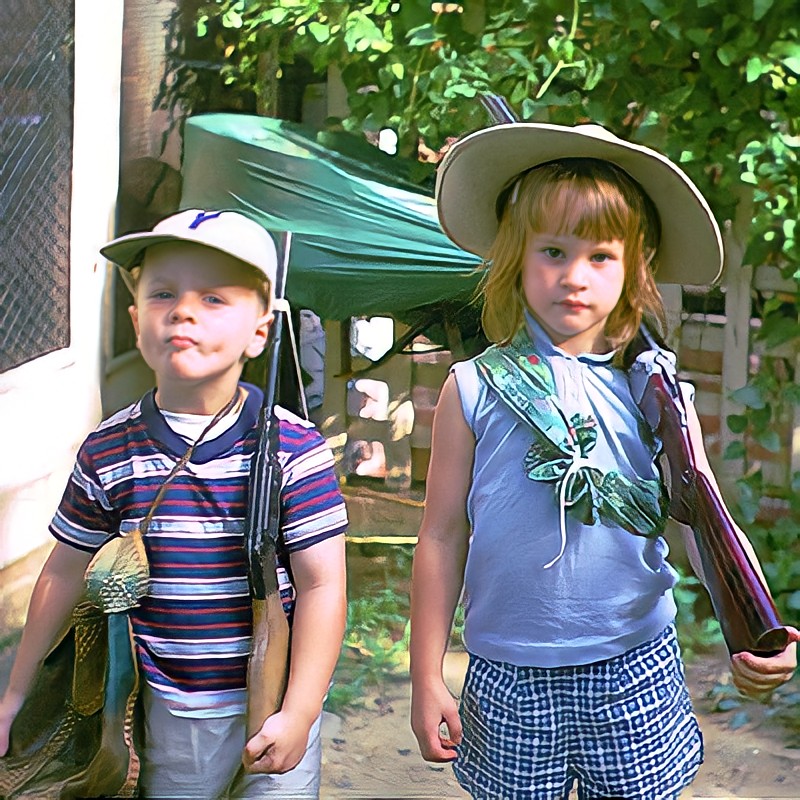
Frances Arnold was born in Pittsburgh, Pennsylvania, and grew up in the adjoining borough of Edgewood. Her father was a nuclear physicist, the son of a general in the U.S. Army. A family tradition of military service and the teachings of the Catholic Church lent themselves to an atmosphere of strong discipline in the Arnold home. From an early age, Frances Arnold displayed a skeptical, questioning spirit and a strong streak of independence that put her at odds with her tradition-minded parents. They quarreled over the Vietnam War, and teenage Frances hitchhiked to Washington, D.C to participate in antiwar demonstrations.
By the time Frances Arnold reached high school, this conflict became irreconcilable. Still in her teens, Frances moved out of her parents’ house, supporting herself with odd jobs and renting her own apartment in the city. Concealing her age, she bluffed her way into jobs as a cocktail waitress and cab driver. While working, she graduated from Taylor Allderdice High School in the Squirrel Hill district of Pittsburgh. She eventually reunited with her family and applied to Princeton University, her father’s alma mater. Her high school grades might have made it difficult for her to win admission as a liberal arts major, so she applied to study mechanical engineering, an unusual choice for a female applicant at that time. Her unusual background caught the attention of the admissions office, and she was admitted as a mechanical engineering major.
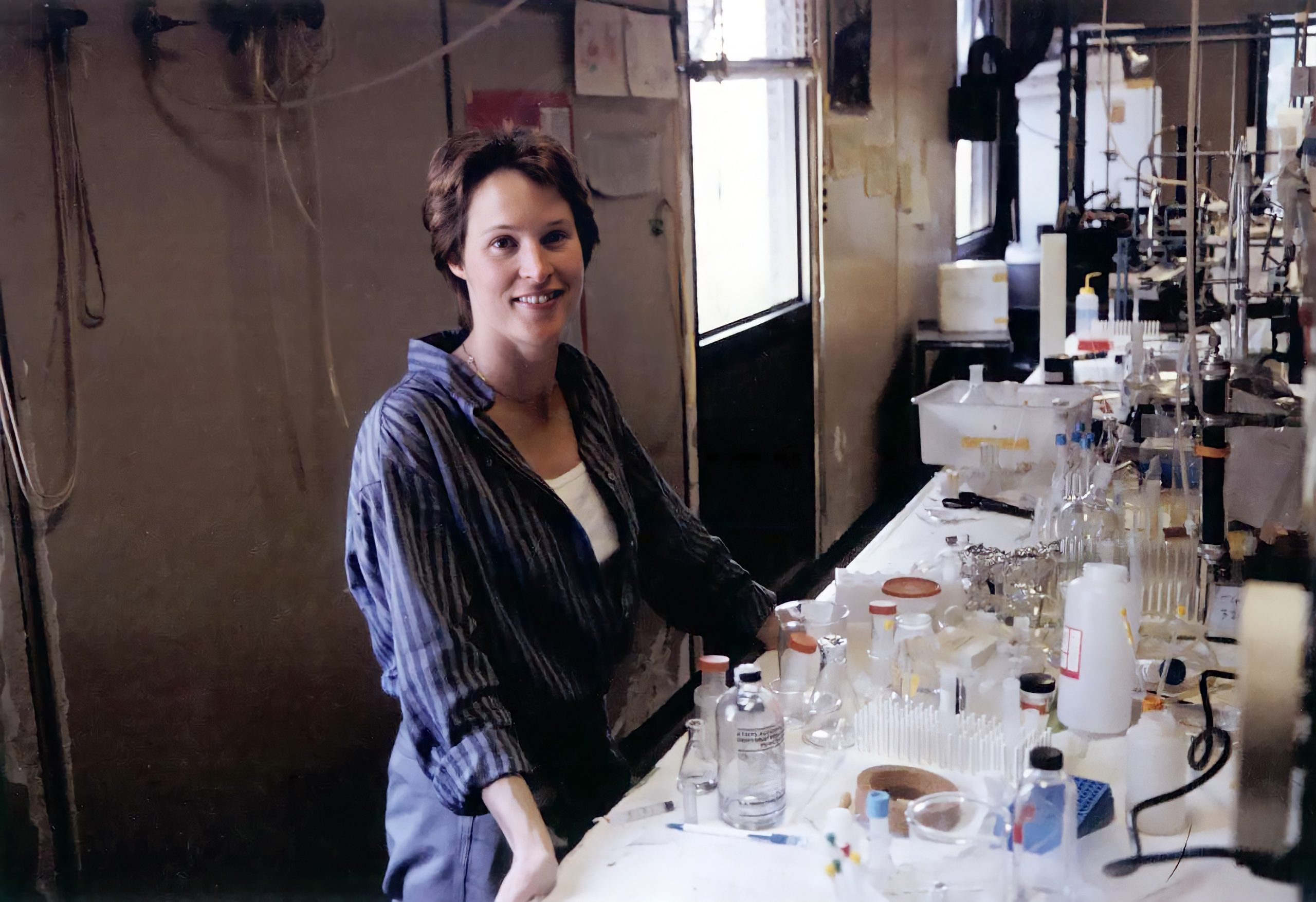
Once at Princeton, she studied languages — Russian and Italian — literature, economics, and other subjects far removed from her major. As an undergraduate, she took a year off to work in Italy at a factory, manufacturing parts for nuclear reactors, but she disliked the work. By the time she earned a degree in mechanical engineering, her interest had turned to alternative energy. After graduation, she worked for the Solar Energy Research Institute in Colorado and undertook solar energy projects in Brazil and South Korea.
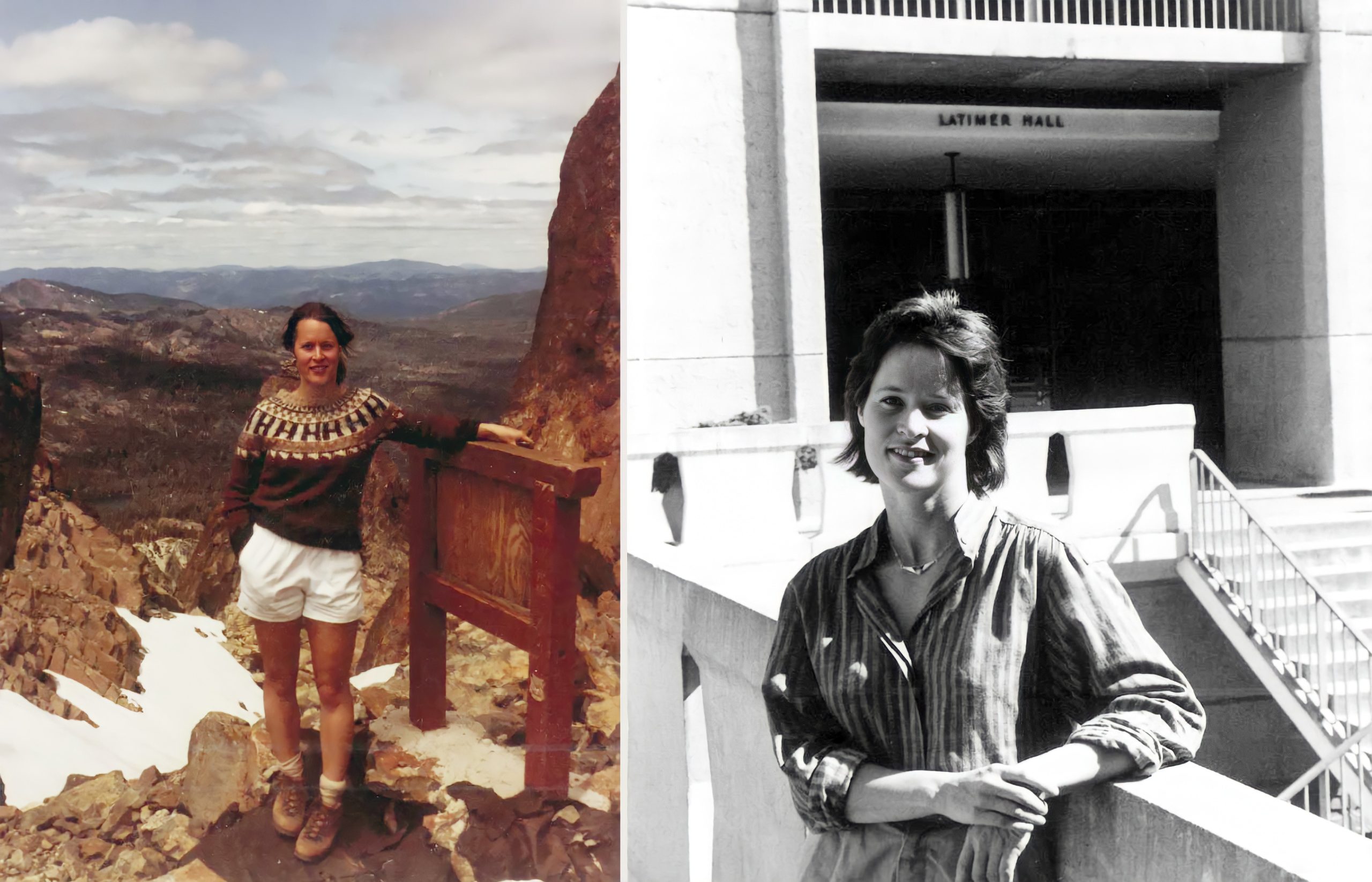
By the 1980s, Arnold had begun to see the future of energy in the exploitation of biofuels and decided to study chemical engineering at the University of California, Berkeley. She completed her Ph.D. in chemical engineering in 1985 and continued postdoctoral research in biochemistry at Berkeley. In 1986, she joined the California Institute of Technology (Caltech) in Pasadena as a visiting associate. She was soon promoted to assistant professor and has remained at Caltech ever since, rising to full professor within a decade. She was named to an endowed chair in 2000.
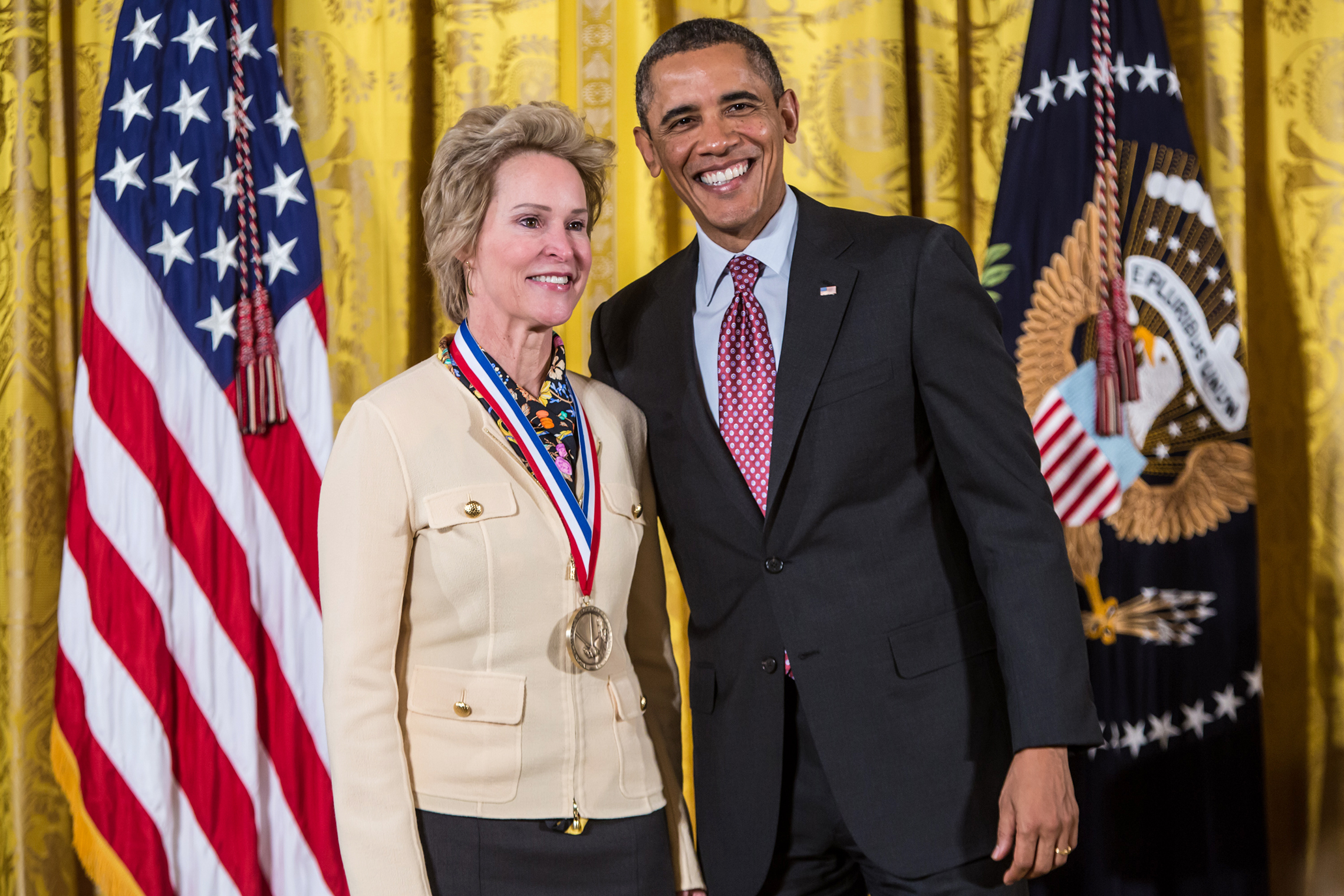
At Caltech, Dr. Arnold pioneered methods of “directed evolution” to create new proteins not found in nature. At first, she followed established practice, attempting to induce specific mutations in DNA molecules to achieve predetermined results. She came to realize that this process could expend decades of work without achieving any significant results.
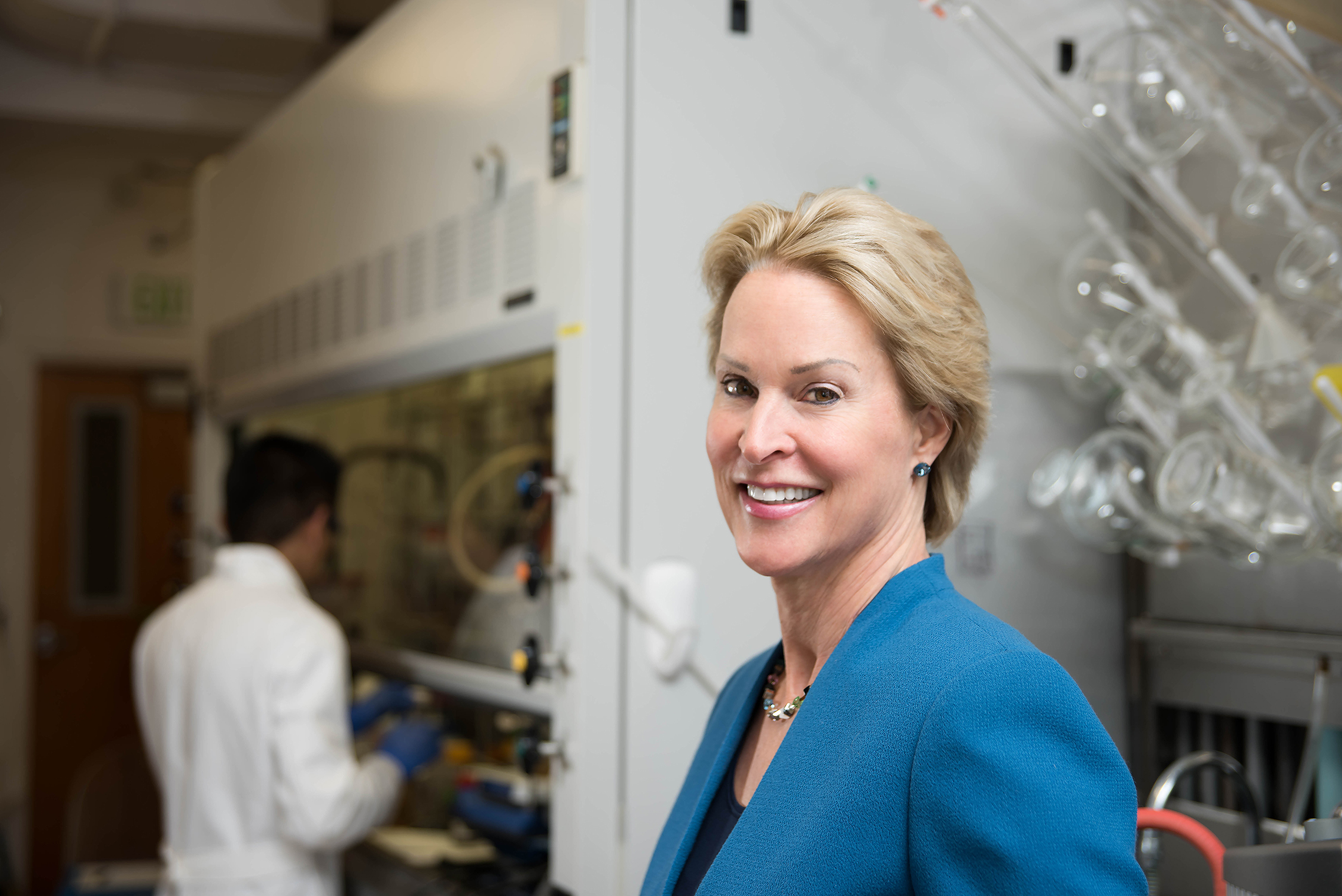
Instead, she chose to induce random mutations, screening the resulting enzymes for the sought-after properties, propagating the best candidates, inducing more random mutations, and screening again, allowing the natural process of evolution to lead her to her goal. Manipulating the evolutionary process, Dr. Arnold created new proteins in the laboratory, just as animal breeders create new breeds of domestic animals. Publication of Arnold’s work in 1993 created a sensation in the scientific community and placed her at the forefront of her field.
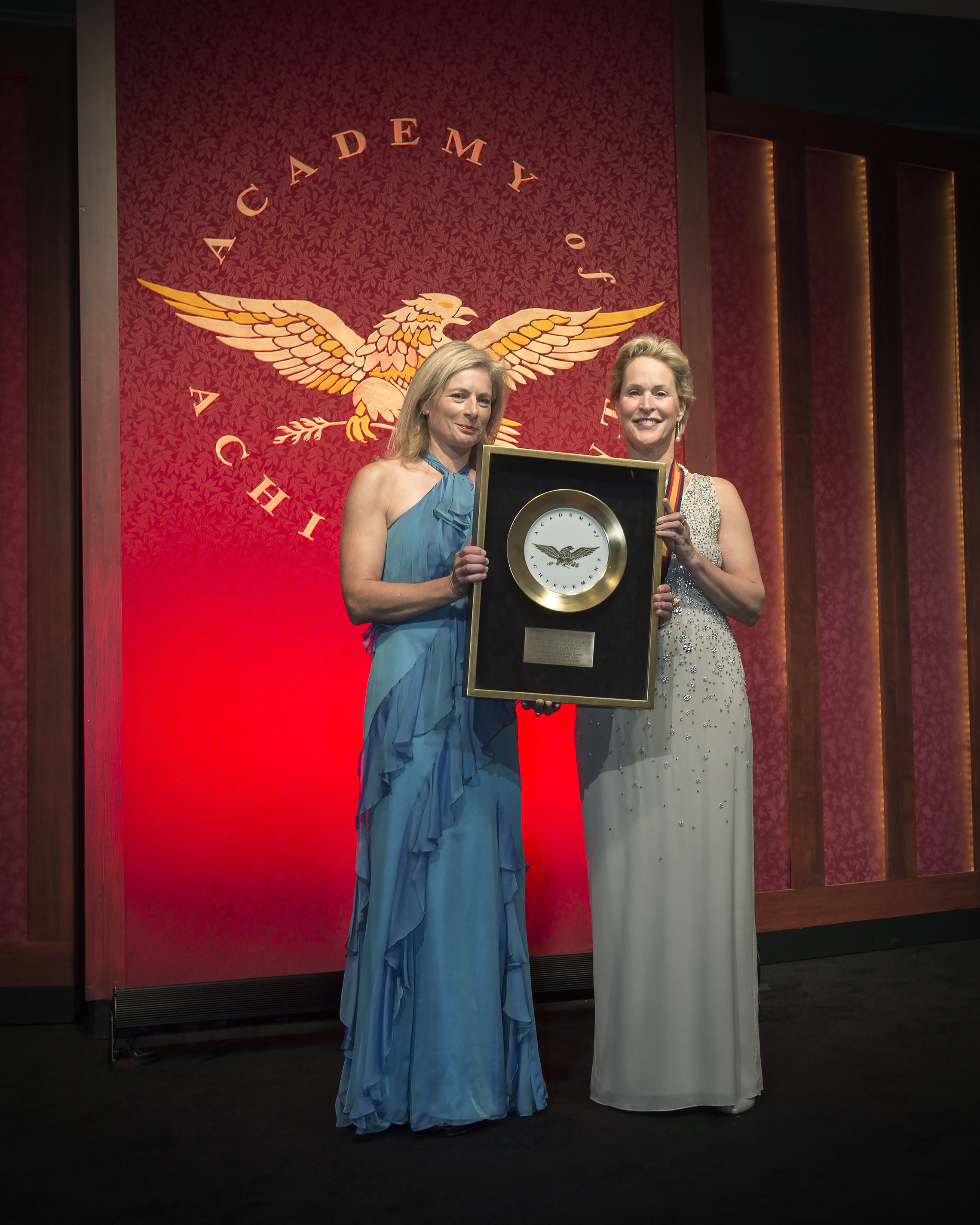
Her laboratory has generated novel and useful enzymes and organisms for applications in medicine, neurobiology, chemical synthesis, and alternative energy. She and her team have constructed entire synthetic families of enzymes and other proteins to study the relationship of structure and function outside of the normal patterns of natural selection.
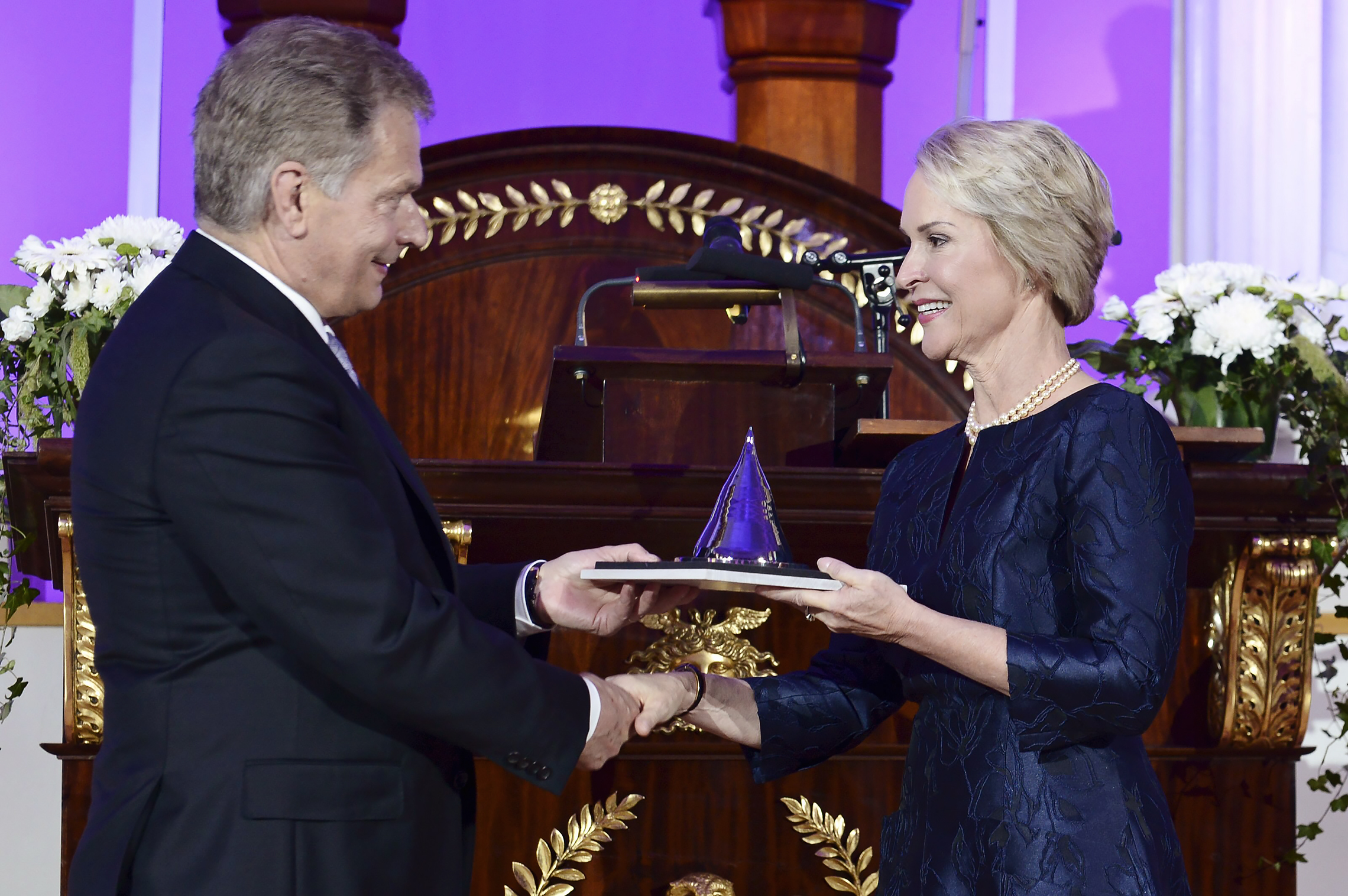
Her work has led to the production of enzymes that function in airless environments, enabling the production of biofuels without reliance on expensive air-circulating equipment. She co-founded the biofuel company Gevo in 2005 and a second company, Provivi, in 2013 to develop green biocatalytic processes for agricultural and specialty chemicals.
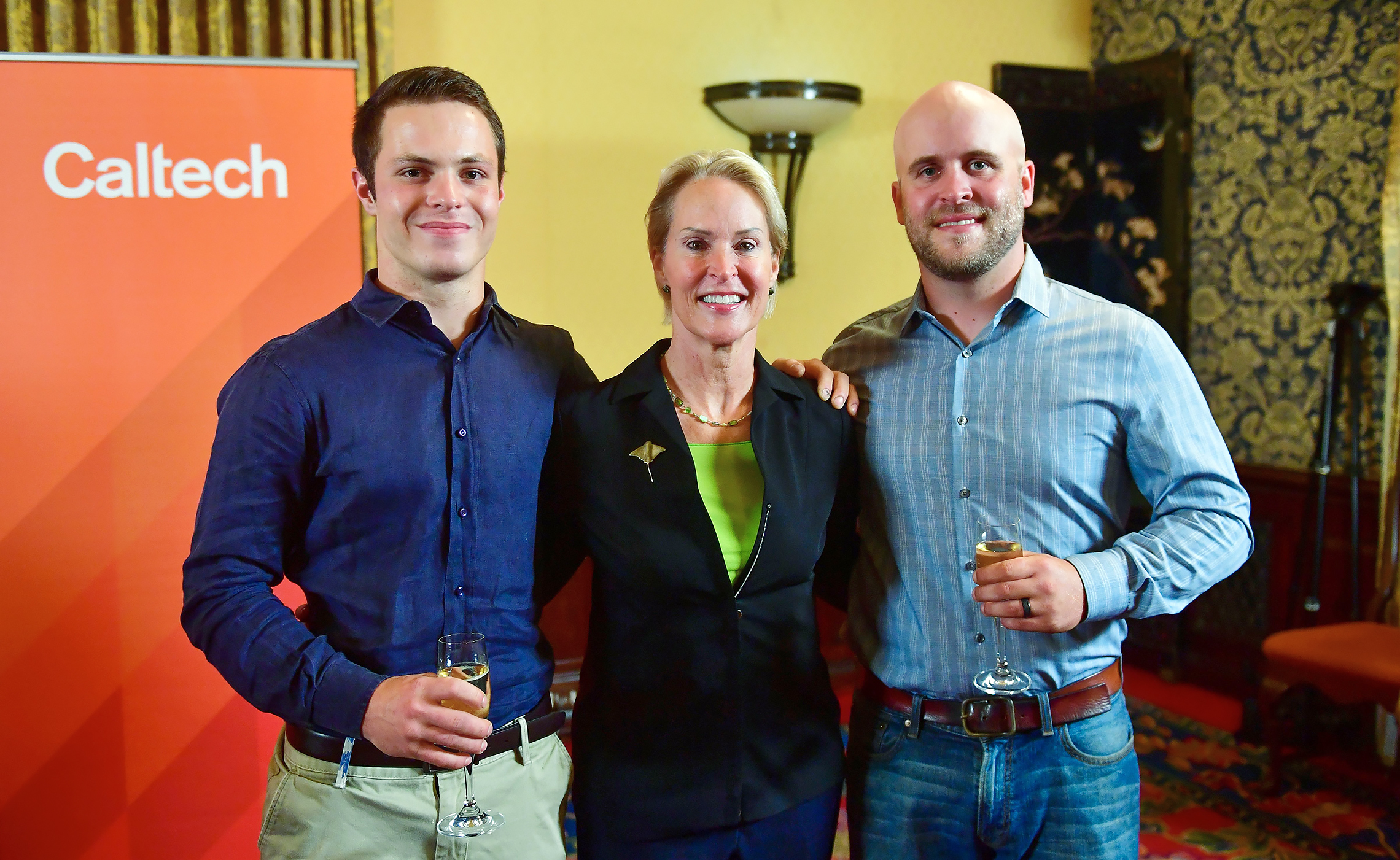
The mutated proteins she has developed are also reducing industry’s reliance on toxic chemicals in manufacturing. Techniques she pioneered led to Merck’s development of the new diabetes drug Januvia. She has developed proteins that bind to neurotransmitters, detectable by MRI, revealing a detailed map of the brain’s chemistry. This technique has been tested in animal trials and may lead to new tests and treatments for Alzheimer’s, Parkinson’s disease, and depression.
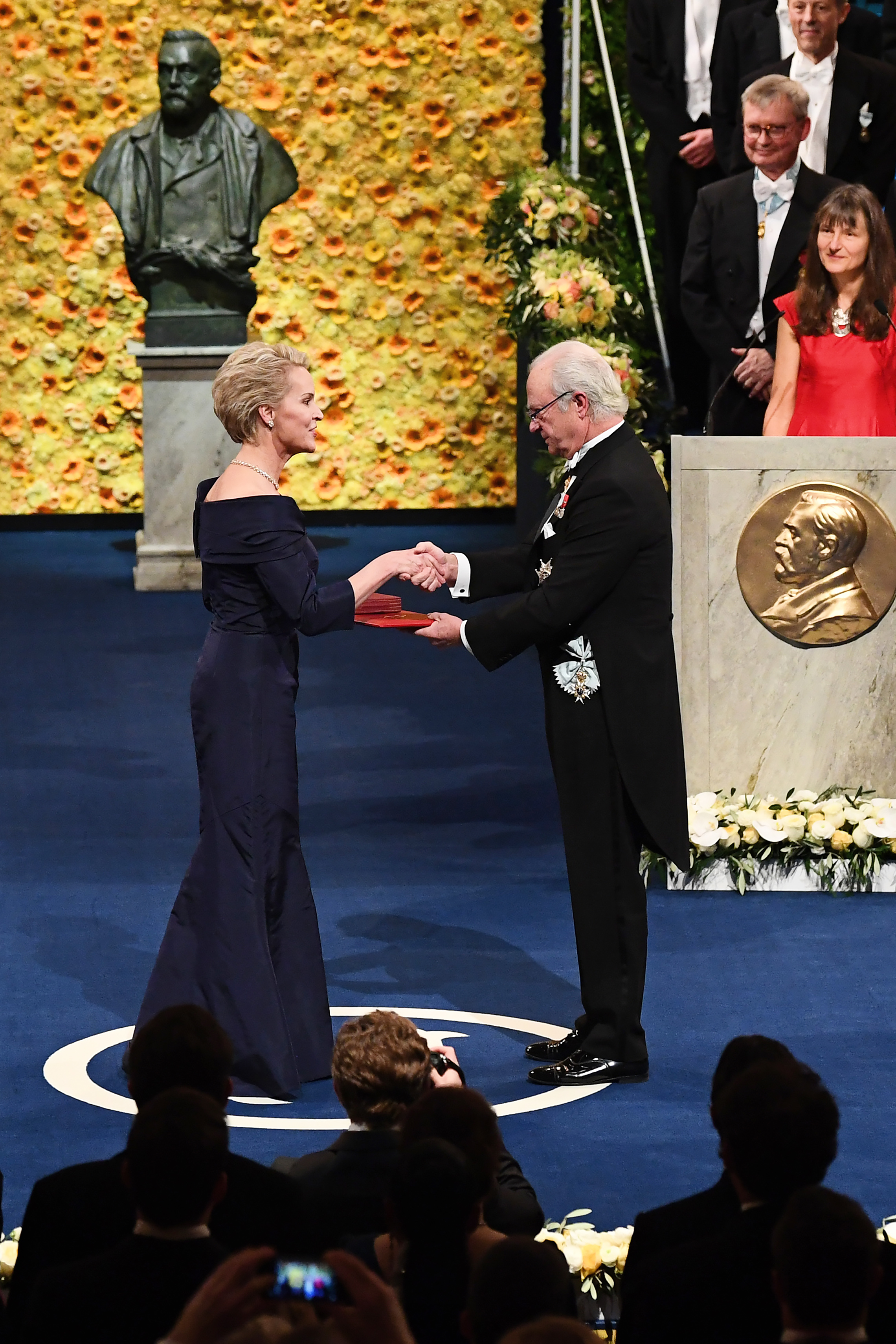
Throughout the years of her greatest achievements, Dr. Arnold endured more than her share of personal challenges. Her marriage to fellow biochemical engineer James E. Bailey did not last, and Arnold went on to start a family with a Caltech colleague, astrophysicist Andrew Lange, in 1994.
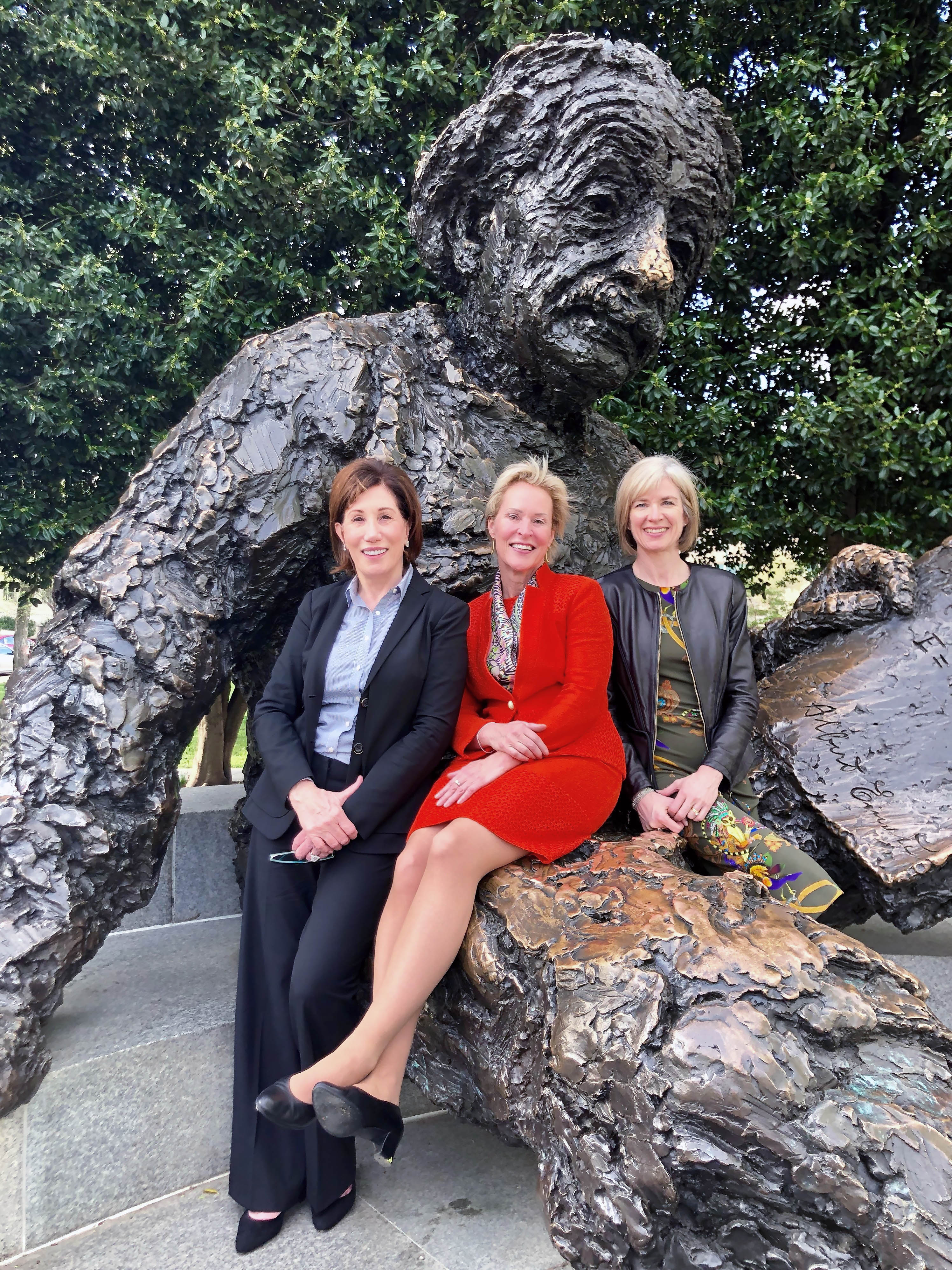
They had two sons, William and Joseph. Arnold and Lange raised all three of her sons together. James E. Bailey died of cancer in 2001. Arnold herself survived a 2005 diagnosis of breast cancer, but more heartbreak lay ahead. Arnold and Andrew Lange were separated at the time of his death, a possible suicide, in 2010. Their son William died in an accident in 2016.
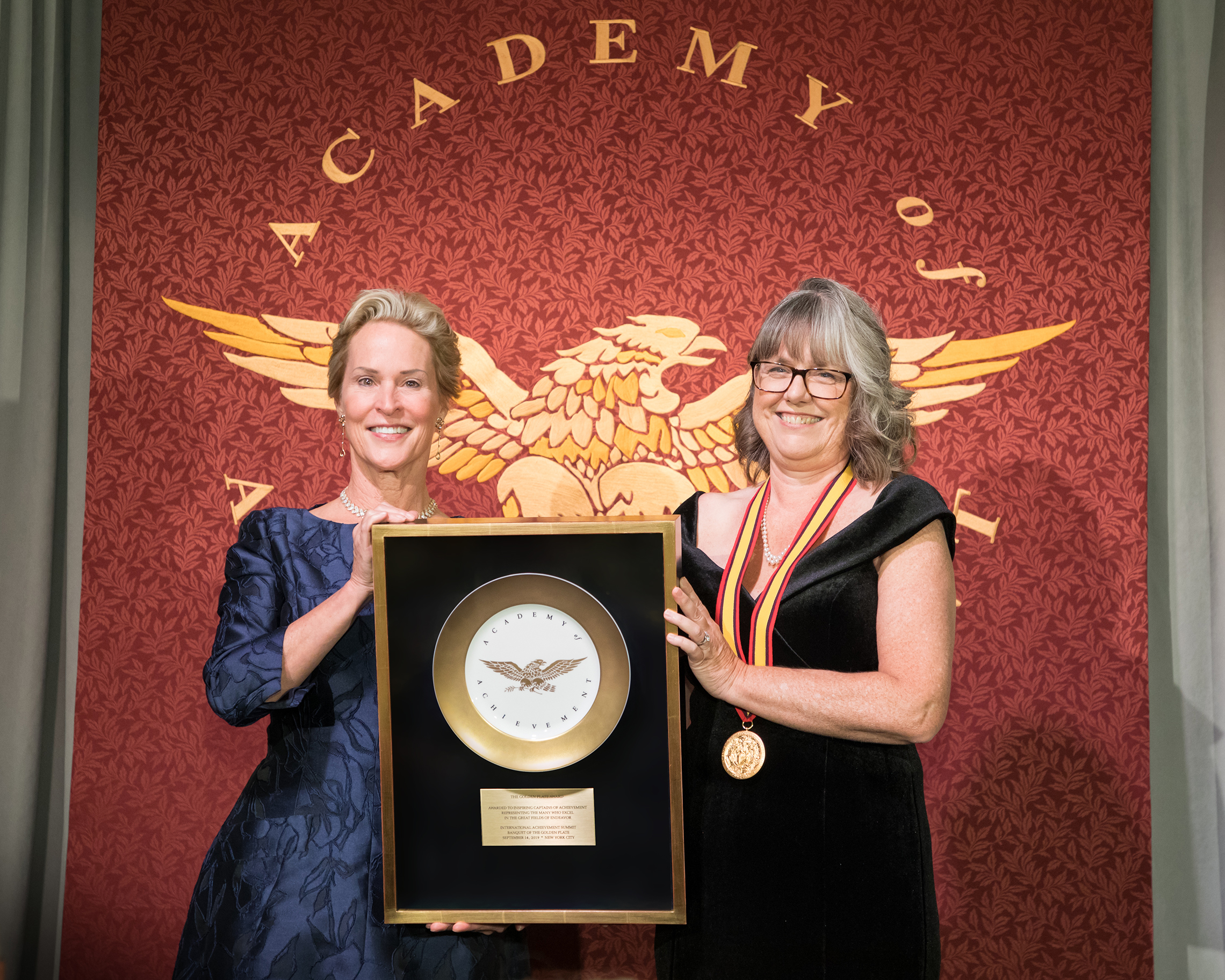
Despite these tragedies, she pursues an intense schedule of research, travel, lecturing, and mentoring younger colleagues. She directs the Rosen Bioengineering Center at Caltech and lives in the nearby foothill community of La Cañada Flintridge, close to her surviving sons, James and Joseph. Physically active and adventurous, Dr. Arnold’s hobbies include skiing, scuba diving, and dirt-biking.
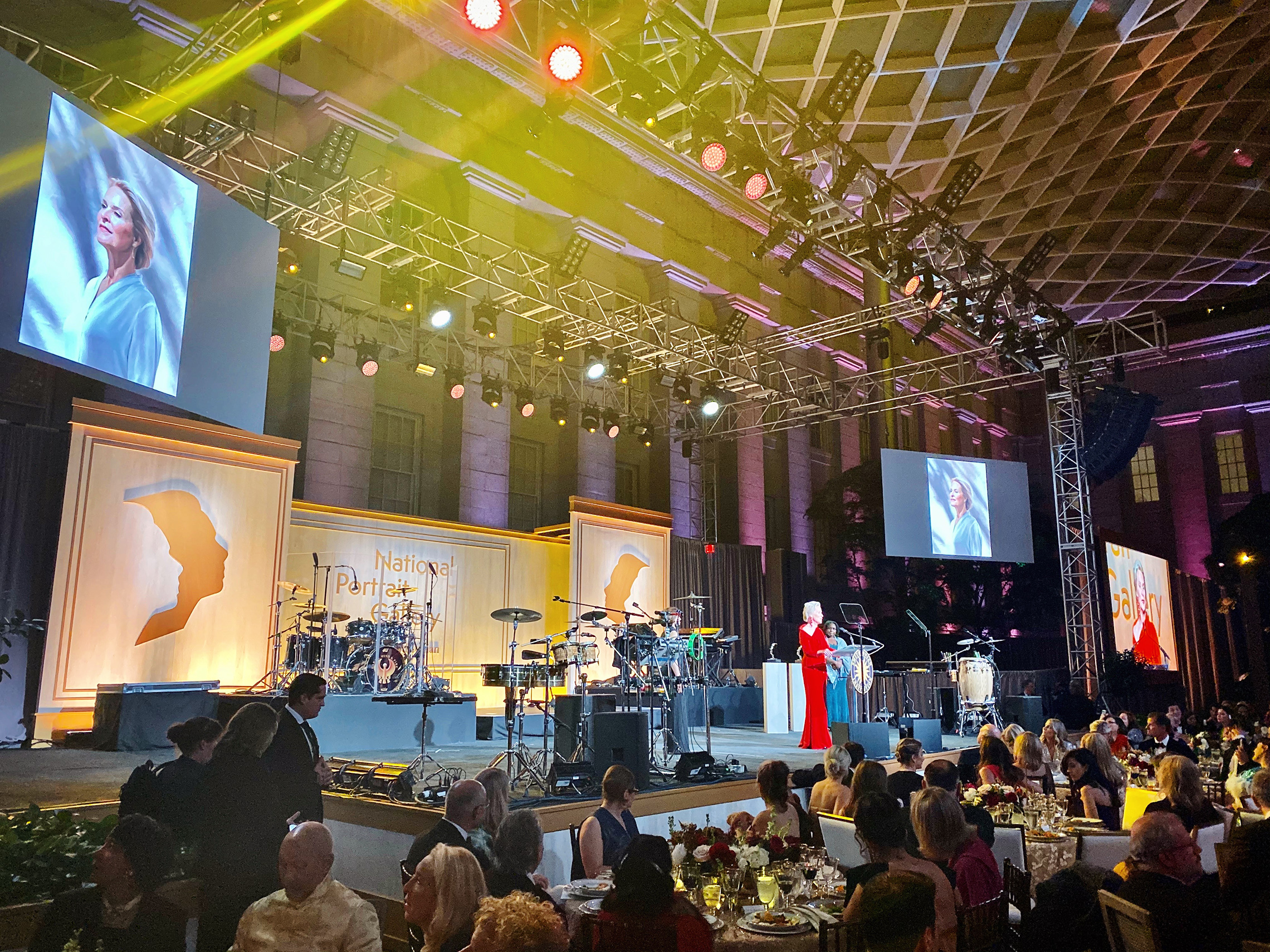
To date, Frances Arnold is credited with 40 patents and over 200 publications. Her work has been honored with a slew of awards, including the Charles Stark Draper Prize and the National Medal of Technology. In 2014, she was inducted into the Inventors’ Hall of Fame.
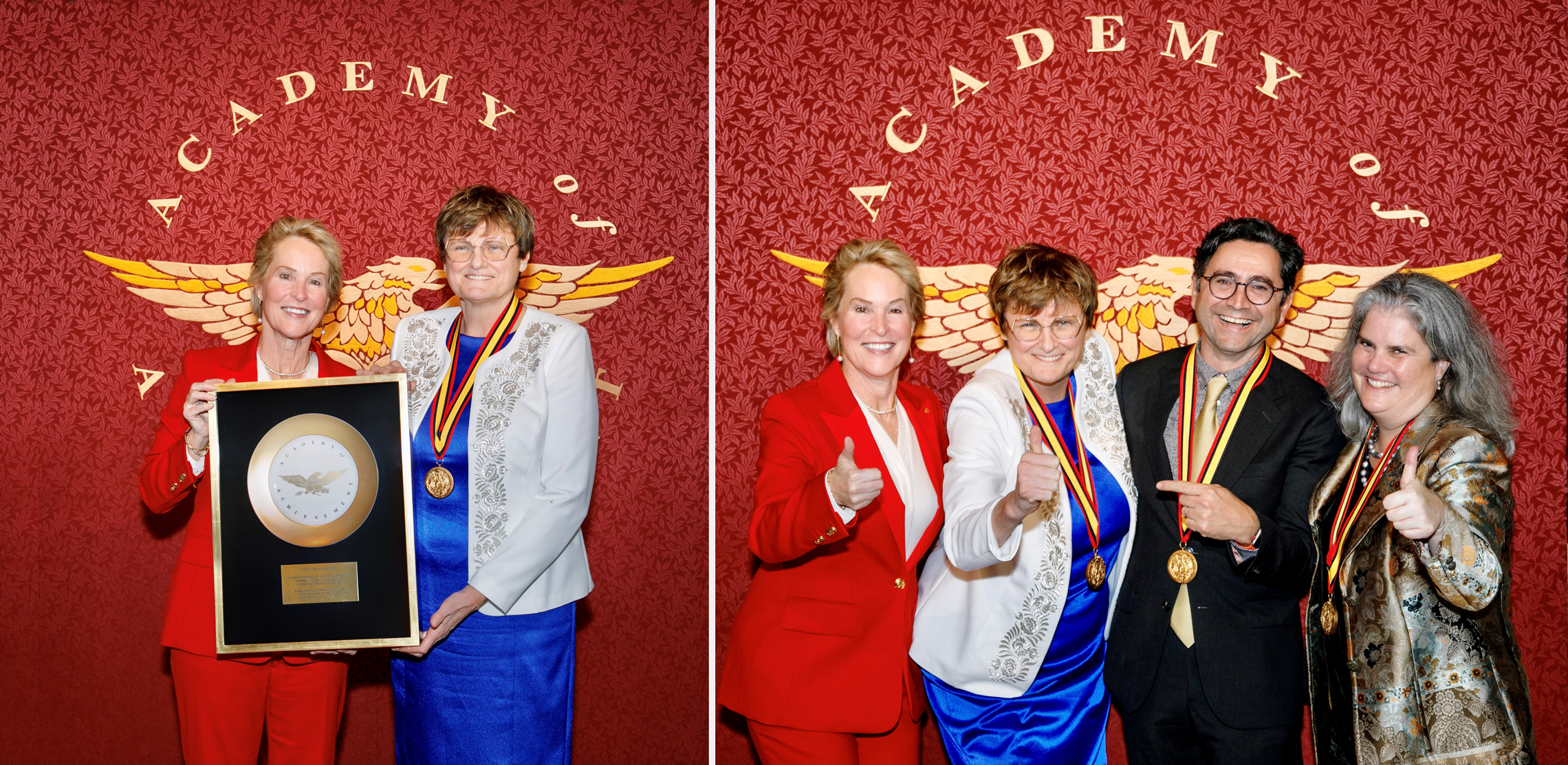
In 2017, Frances Arnold was named the Linus Pauling Professor of Chemical Engineering, Bioengineering, and Biochemistry at Caltech. In 2018, she received the Nobel Prize in Chemistry. At the time, only 17 women had won Nobel Prizes in the sciences, and only five women had received the chemistry prize in the 117 years of its existence. Frances Arnold is the first American woman to receive the Nobel Prize in Chemistry. In 2021, incoming President Joseph Biden tapped Frances Arnold to serve in his administration as Co-Chair of the President’s Scientific Advisory Council.

For centuries, the science of chemistry dealt with the isolation and manipulation of minerals and organic compounds already found in nature. Frances Arnold’s techniques of “directed evolution” have revolutionized the practice of chemistry by creating new organisms and enzymes for use in medicine, agriculture, manufacturing, and alternative energy.
The first American woman to receive the Nobel Prize in Chemistry, she came to her profoundly original research by an equally original career path, one that led her from undergraduate studies in aerospace engineering at Princeton — and an early career in alternative energy in the United States and Brazil — to postdoctoral chemistry studies at Berkeley and an endowed chair at Caltech, where she directs the Rosen Bioengineering Center. A co-founder of the biofuel company Gevo, she founded a second firm, Provivi, to develop green biocatalytic processes for agriculture and industry.
The techniques she pioneered have already led to the development of a new treatment for diabetes and are now reducing industry’s reliance on toxic chemicals in manufacturing. Proteins she has created for use in brain imaging may soon lead to improved testing and treatment for depression, Parkinson’s disease, and Alzheimer’s. Her work has been honored with the Charles Stark Draper Prize, the National Medal of Technology, and induction into the Inventors Hall of Fame. She received the Nobel Prize in Chemistry in 2018.
Dr. Arnold, you left home at age 15. You were at odds with your family, but you managed to get an education and become a Nobel Prize-winning scientist. How did you manage to go from living and working on your own to going to Princeton University?
Frances Arnold: I was always good at teaching myself things. If I wasn’t going to let the world teach me, I was going to learn through my own experiences. Believe me, this was painful because many of those experiences were not such great experiences. I was hungry; I was lonely. I probably was in danger a lot of the time. The cities were not safe; the city streets were not safe. But I had to do it through my own experience.
And that power — so when you’re 15, you don’t have any power. I remember so clearly saying, “I’m so frustrated because I want to do all these things, but I have no mechanism to do it. I don’t know how to do it. I don’t know how to travel around the world. I don’t know how to run my life or learn these things. But what my power is, is collecting knowledge.” And somehow I knew, early on, that knowledge was like money in the bank. That if you could collect experiences, that if you could learn — teach yourself calculus — that if you could read a history book, all of which I loved to do; if you could teach yourself music, then somehow, I had the knowledge or the conviction that that would add up.
So I got to go to college. I got into Princeton and not on my grades but probably for some of the other crazy things that I did in arts and music. And it probably didn’t hurt that my father was a Princeton grad with his Ph.D. in physics and knew some of the engineering faculty there. And it also probably didn’t hurt that I was the only woman ever to apply in mechanical engineering in the ‘70s. Actually, I think there were two or three before me, but it was just so unheard of. And that was good advice that my father gave me, that if I just applied in engineering, they would look at me. And when they looked at me, they would find me interesting and capable, if not having proven that through grades. And I got into Princeton, and that’s what I studied — engineering.
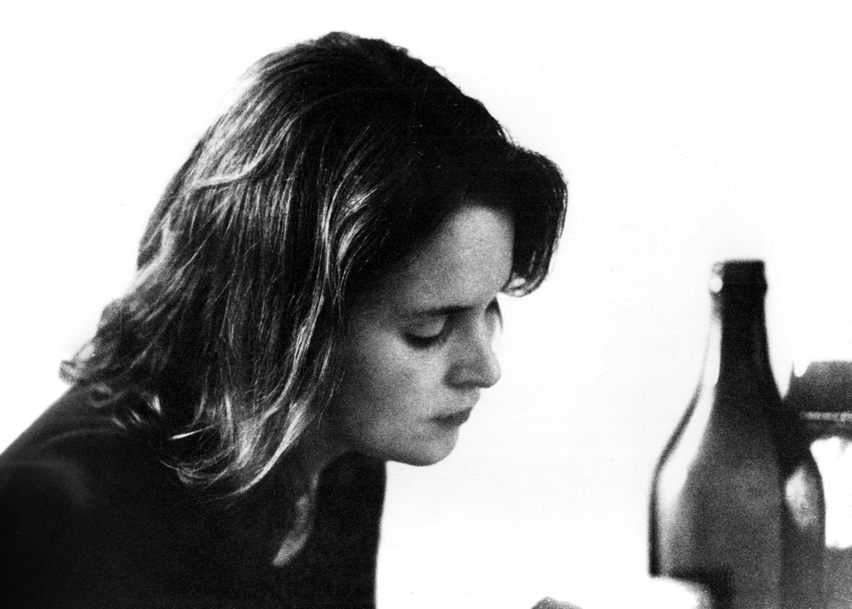
So how did you switch from mechanical engineering at Princeton to chemical engineering at Berkeley?
Frances Arnold: I still believe that collecting experiences is what life is all about. And I had no intention whatsoever of being a mechanical engineer. I took that as an opportunity to get into a good school, and then I found out they had very few requirements at Princeton. You could get a degree in mechanical engineering without knowing a lot of engineering because Princeton undergrads did not become practicing mechanical engineers. They went on to finance or law school. And so they didn’t really feel they needed to teach us piping diagrams or something like that.
So I took that opportunity to study languages and economics and literature and Russian and have just a wonderful experience learning as many things as I could. And then all of a sudden, I graduated with a degree in mechanical engineering. And that was after living in Italy. I lived in Italy, and I worked as a mechanical engineer — hated that, absolutely hated that. And I worked in Spain and Brazil. And I said, “Wow, I could be a CEO of a company. I could be a diplomat.” I had no idea what these jobs actually entailed, but I wasn’t sure what to do.
And I found out that I really cared about what was happening in society at the time. This was now the end of the ‘70s, and we had so much disruption, particularly in energy. So you remember the oil crises and cars going all around the block waiting to get gassed? We had these huge disruptions, and you could tell that our way of life and the future was in danger if we didn’t learn how to live sustainably. So I took it on myself to help implement President Carter’s plan of 20 percent renewable energy by the year 2000.
I didn’t realize that. That’s amazing.
Frances Arnold: I went to the Solar Energy Research Institute in Golden, Colorado, which was a brand-new national laboratory, because I wanted — by then, I really wanted to do something that would benefit society and the planet. I didn’t want to just tear things down anymore. I had grown up to the point where just questioning was no longer satisfying.
When you’re young, you can question, but you don’t know how to solve the problem. At Princeton, I was given some tools that I could use to actually attack a problem and maybe even offer a solution. And I thought that implementing renewable energy and getting us out from under the thumb of, you know, the Arab, the Middle East, and our addiction — the United States’s addiction to gasoline and to oil — would maybe offer a good alternative.
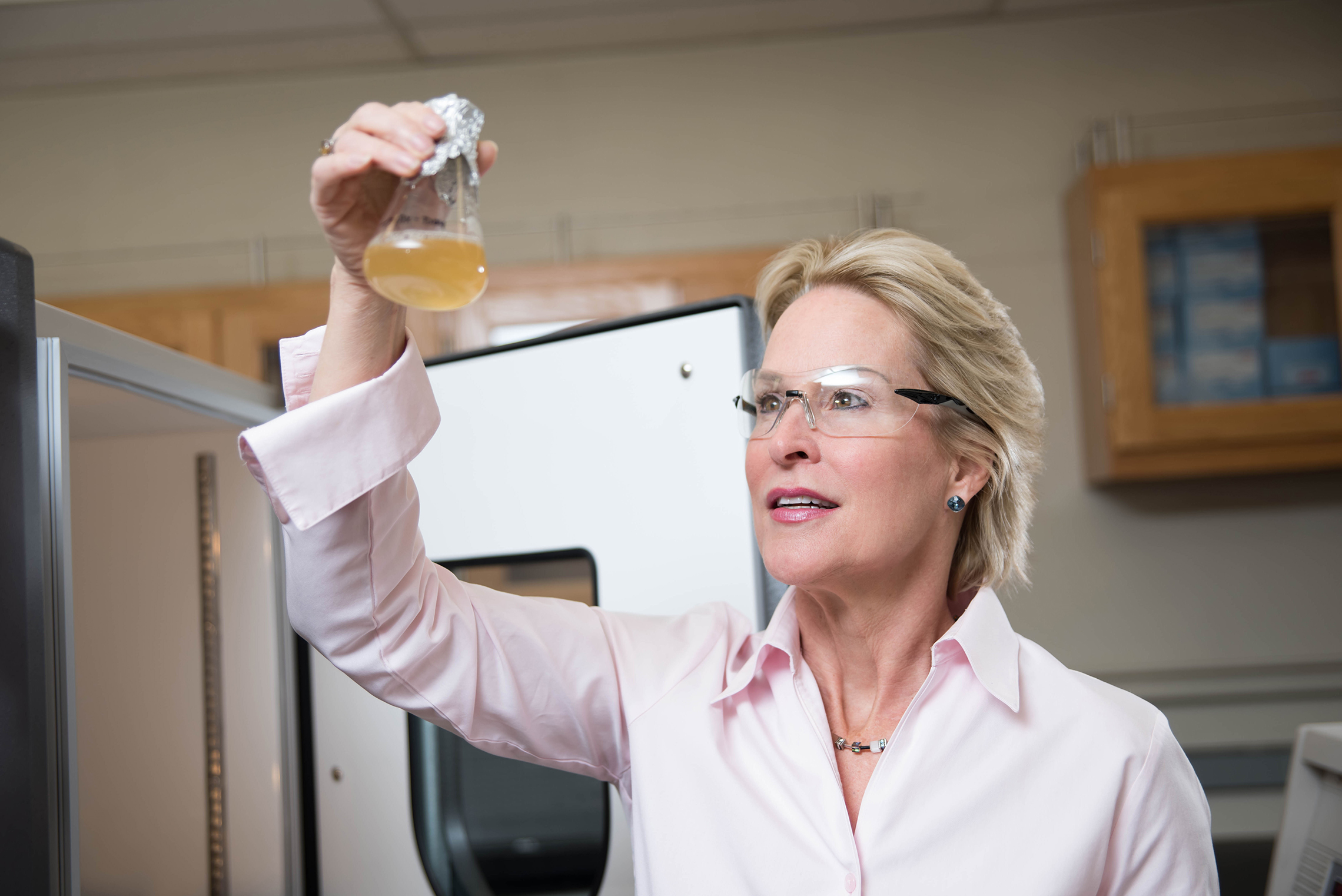
So how do you connect that desire to enzymes?
Frances Arnold: Reagan was elected a year after I got to the Solar Energy Research Institute. The solar collectors came off the White House; the cars grew from this to this. And it was pretty clear to this young engineer that solar energy future was going to be a rocky road. And that was true for all renewable energy.
And so I said, “Well, let’s go learn something new.” And I applied to graduate school at Berkeley. Berkeley sounded like a good place to be. I’d never been to California. This was 1980 when I applied — or 1981. And I showed up — I was admitted to graduate school in chemical engineering because I thought still maybe I could do something technological for replacing oil.
And I showed up at Berkeley at the beginning of the DNA revolution. My timing was fantastic. And I just got so excited about the technological implications of being able to manipulate the code of life for the first time. That’s what was happening.
I think it’s still difficult for a layperson to understand how fuels could come down to enzymes, but you already saw that potential.
Frances Arnold: This is an old idea. Cars were run on wood in the old days. They could burn wood, gasify wood. Cars were run on ethanol. I mean oil is a new phenomenon. That didn’t become widely available until the ‘30s and ‘40s. So the original fuels were — a lot of them were bio-based. We lost that when it became so easy to pump oil out of the ground. But we all know that biology stores solar energy in all sorts of forms, and one of those forms is plants. So these ideas had been around for a long time, that you could convert plants into fuels.
I wanted to do that when I went to graduate school in the 1980s, but we were not ready for that then. And that’s when I got caught up in this whole new revolution, that we could manipulate the code of life, that we could cut and paste DNA. These brand-new companies — Genentech, Amgen — they were just being formed, out of this revolution in the technology. Now they’re mega-companies today, but this was a whole nascent set of ideas. And here I was, a young graduate student learning biochemistry, and learning chemistry for the first time, from the people who started this revolution. So I looked at the biological world and said, “That’s what I want to engineer — not nuclear power plants, not rocket ships, not airplanes.” I thought maybe it would be fun to work on spaceships.
I said, “No, look at the biological world. Here is the most beautiful, intricate, functional, capable set of engineering things that have ever been devised. And it was all devised by the biological world, by evolution — not by human beings, not by human engineers.” And I said, “I want to engineer that. I want to go in and modify DNA to solve human problems” — to solve the same problems that I saw in my previous career. There were lots of problems to solve, but I didn’t have the tools. I said, “Now I’m going to take these brand-new tools and apply them to looking at some of these things.”
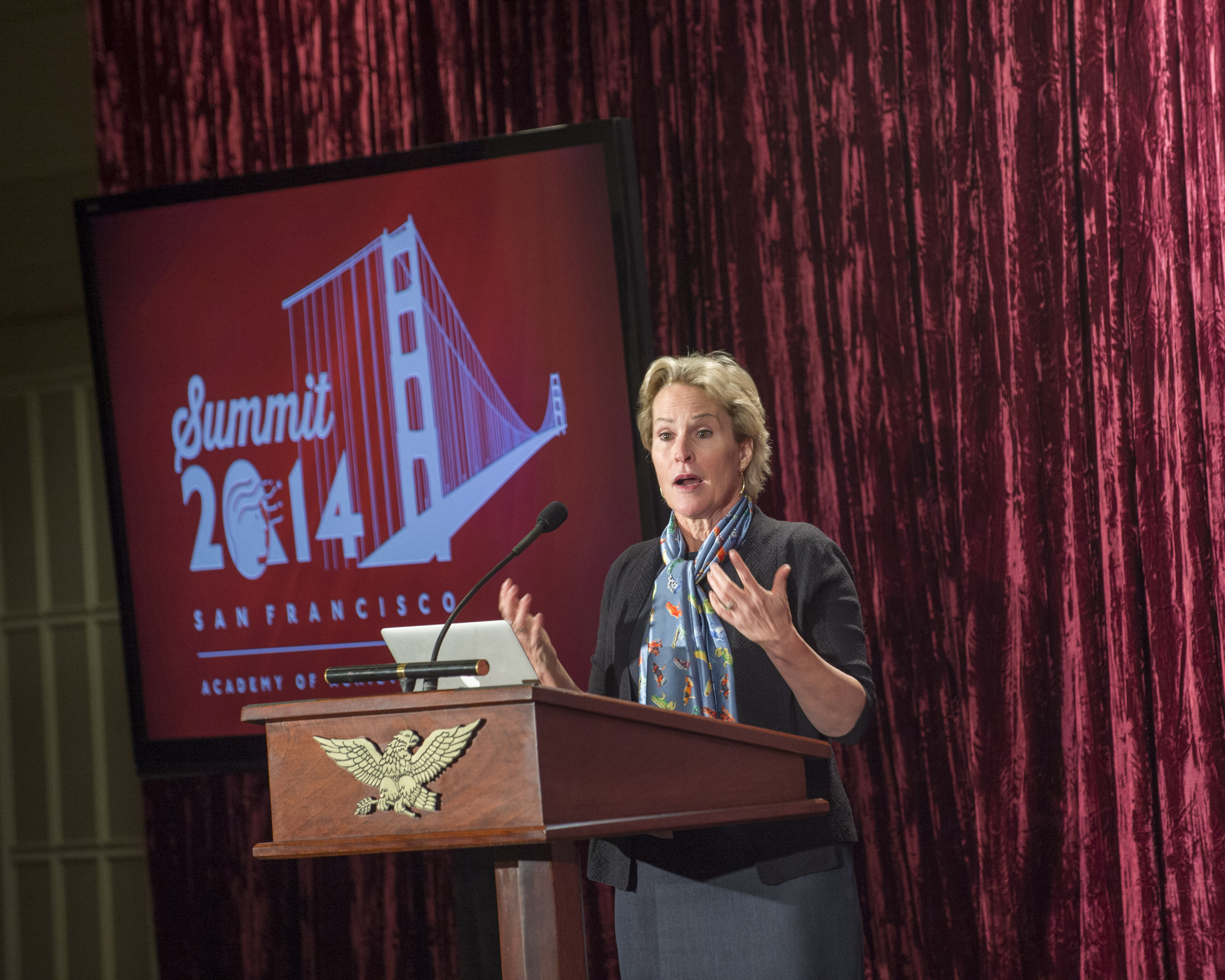
So you’ve said, in terms of nature and evolution, “Why not learn from the best?”
Frances Arnold: Why not learn from the best? We have four billion years of work that went into the chemistry of the biological world. So just looking at it from the chemistry point of view, our whole chemicals industry, our whole lifestyle, is predicated on the need to take abundant starting materials and turn them into our clothing and our packaging and our housing — basically everything that supports our life is done through chemistry. And we do a terrible job at it. Human beings do chemistry very inefficiently, and we’ve managed to pollute the planet at the same time that we provide these products for us.
And I said, “Surely, we can do better than that.” And just look at the biological world for examples of how you can take abundant, renewable starting materials, not oil — sunlight and carbon dioxide, cheap things from the planet — and turn those into the products we need in our daily lives. And the way nature does that is with these protein catalysts called “enzymes.” They convert one form of matter into another and into all of life. And these are the most beautiful, intricate, efficient, selective, non-polluting machines that you can imagine. No human being can master that chemistry. No human being can mimic that chemistry. Only biology can do that. So I said, “I’m going to become an engineer of biology and convince the biological world to take these same abundant starting materials and make the things that I need.”
Did this work grow out of previous failures where other scientists had tried to do this sort of thing in different ways?
Frances Arnold: So it’s easy to say, “I want to be an engineer of the biological world,” but no one had any clue how to do it. These are complicated things that we know very little about. How does DNA encode a human being? How does DNA encode even a single protein molecule? These are answers that we don’t have yet and we won’t in my scientific lifetime. But there’s a process by which all of that was invented, and that process is called evolution. No human being designed any of this. It came out through a simple algorithm of mutation and natural selection.
So I didn’t know how to design new DNA, but I was aware of this engineering process. And I said, “Okay, if I don’t know how to design, why not breed molecules? Why not breed them like you breed cats and dogs? We don’t know how this DNA encodes a hairless cat, but you don’t have to know. You can breed it by choosing the parents and deciding who goes with whom and which progeny from the next generation go on to reproduce. You can do the same thing with molecules in the test tube.” So I rejected the way that the engineering world was approaching this problem. A biochemist would say, “We have to get the structure. You have to understand everything, then you can engineer it.” I said, “No. I’ll be old and dead before that happens.”
Why not use the process that nature uses and breed these mutant molecules in the test tube? Make mutations in the DNA; recombine DNA from 33 different sources. You don’t have to have two parents in the test tube. And then let the system search through those new products and see which ones are starting to acquire the traits that I’m interested in. And that way, we would completely circumvent this complete ignorance of how DNA encodes function. We would just evolve it. And of course, people thought that was a nutty idea and it wasn’t “scientific.”
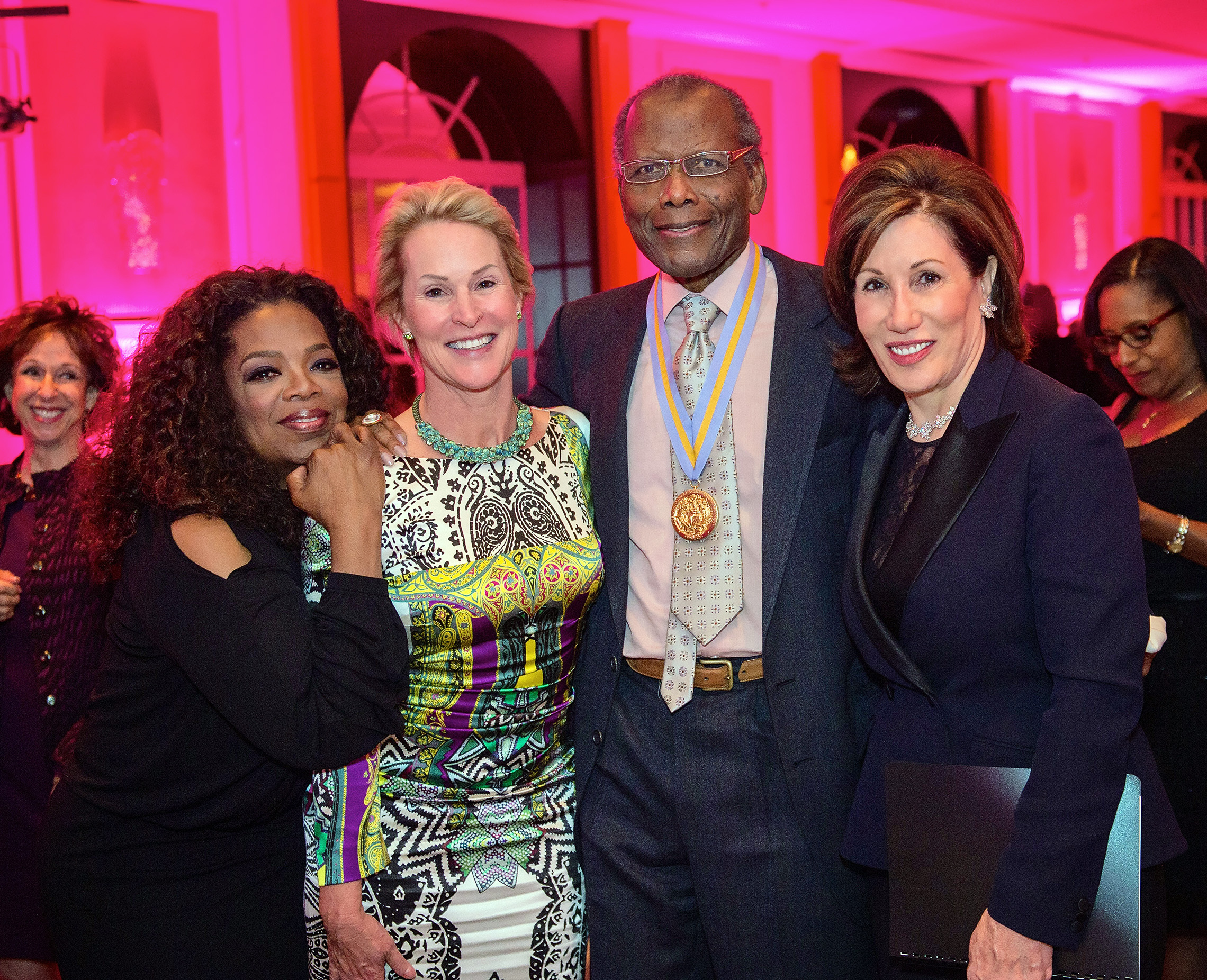
So you got a lot of pushback?
Frances Arnold: I was crazy in those days. I had three little kids, a husband who was also eager to do his science, and I had no patience for pushback. I had no patience for people who wanted to give me advice or tell me it wasn’t going to work. First of all, I knew it would work. And second, I was never good at taking advice, anyway. So people would tell me that “Oh, gentlemen don’t do random mutagenesis, and we make mutations at random because you’re supposed to sit with your big brain and figure things out.” Or “That’s not science.” And then: “Hmm. Well, I’m not a gentleman, and I’m an engineer, so maybe that’s okay.”
So I just was able to ignore the naysayers — and not to say it didn’t hurt my feelings. I listened to the criticism. I took the pieces that were useful to me, and I completely just ignored the rest, and just said, “You don’t know; you don’t understand.” Because I’d seen lots of people who thought they knew everything, and they lied to us. So I was able to, I guess, just by the force of my very stubborn character, to say, “No, I know this is going to work.” And I knew it was going to work right away because it worked right away. And it took me 20 years to convince the rest of the world — or it probably took two years to convince some people and then 20 years to convince others. And maybe others are not even convinced today. But this method really, really worked when no other approach did.
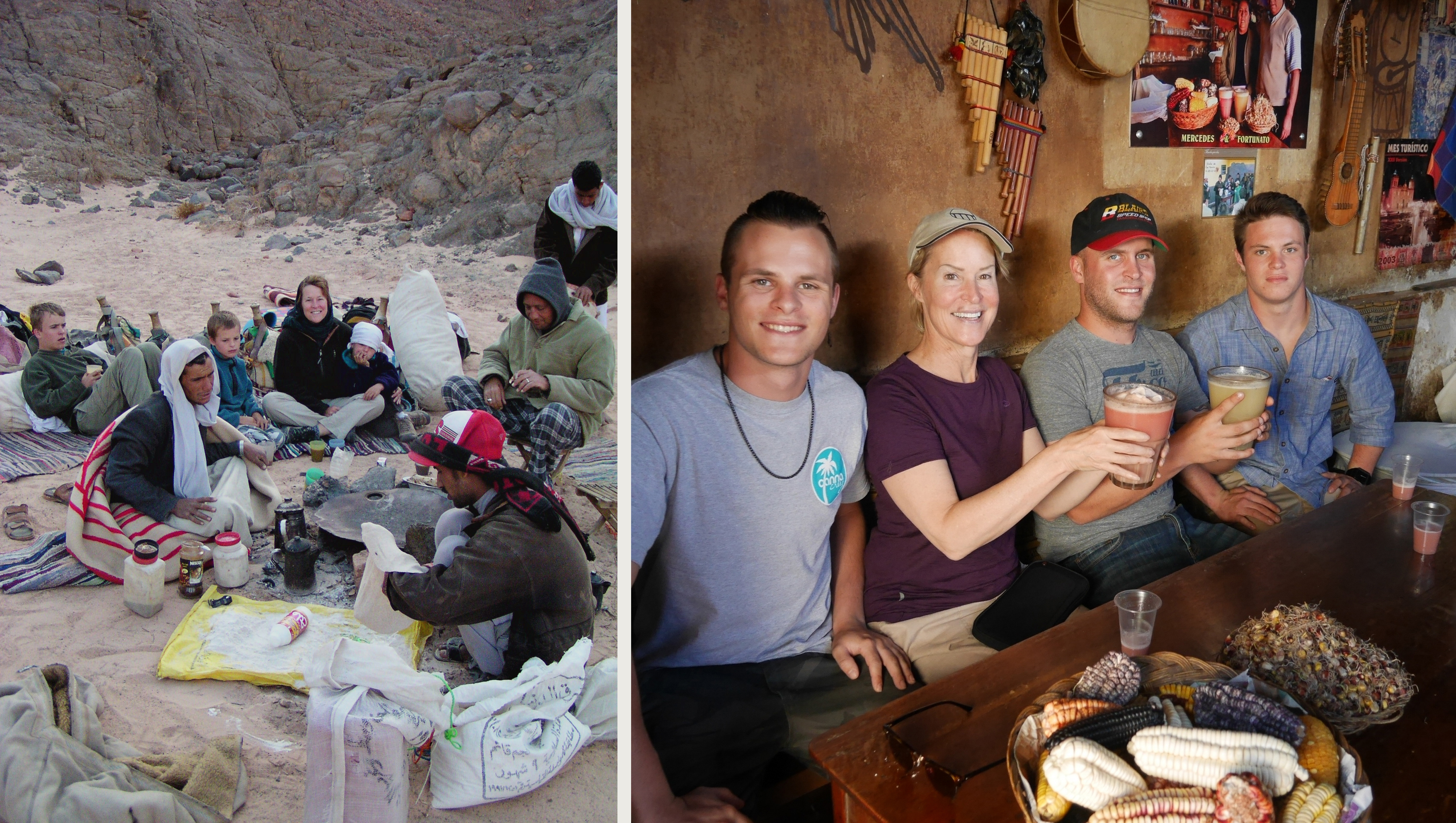
You mentioned your children. You’ve had so many challenges, so many personal tragedies, and yet you persevered and retained that stubborn ambition and vision. How is that possible?
Frances Arnold: What alternative do you have? As a mother, I had children who looked to me when the most terrifying things were happening — when their father died. You could fall apart, but if you fall apart, what happens to everybody else?
I guess I just never felt sorry for myself. Maybe when I was 15, I had a little bout with feeling sorry for myself. But then, once I got control over some parts of my life, I realized, “Okay, what I have control over is how I respond to challenges. I can’t control what other people do, but I can control how I respond, and really, my life is not so bad.” So with that combination of attitude, that I’m really very lucky and I have been very lucky, that helps deal with the parts that are not so lucky.
None of us is entitled to a challenge-free life. And young people come to me and ask for advice on how to deal with what they see as their challenges and try to avoid it. You can’t avoid challenges; you can only overcome them. You don’t have control. Loved ones will die. You will not get the job that you really want. You will be laid off. Someone’s going to criticize you. It’s going to happen. How you respond to it really dictates whether you will be happy or not.
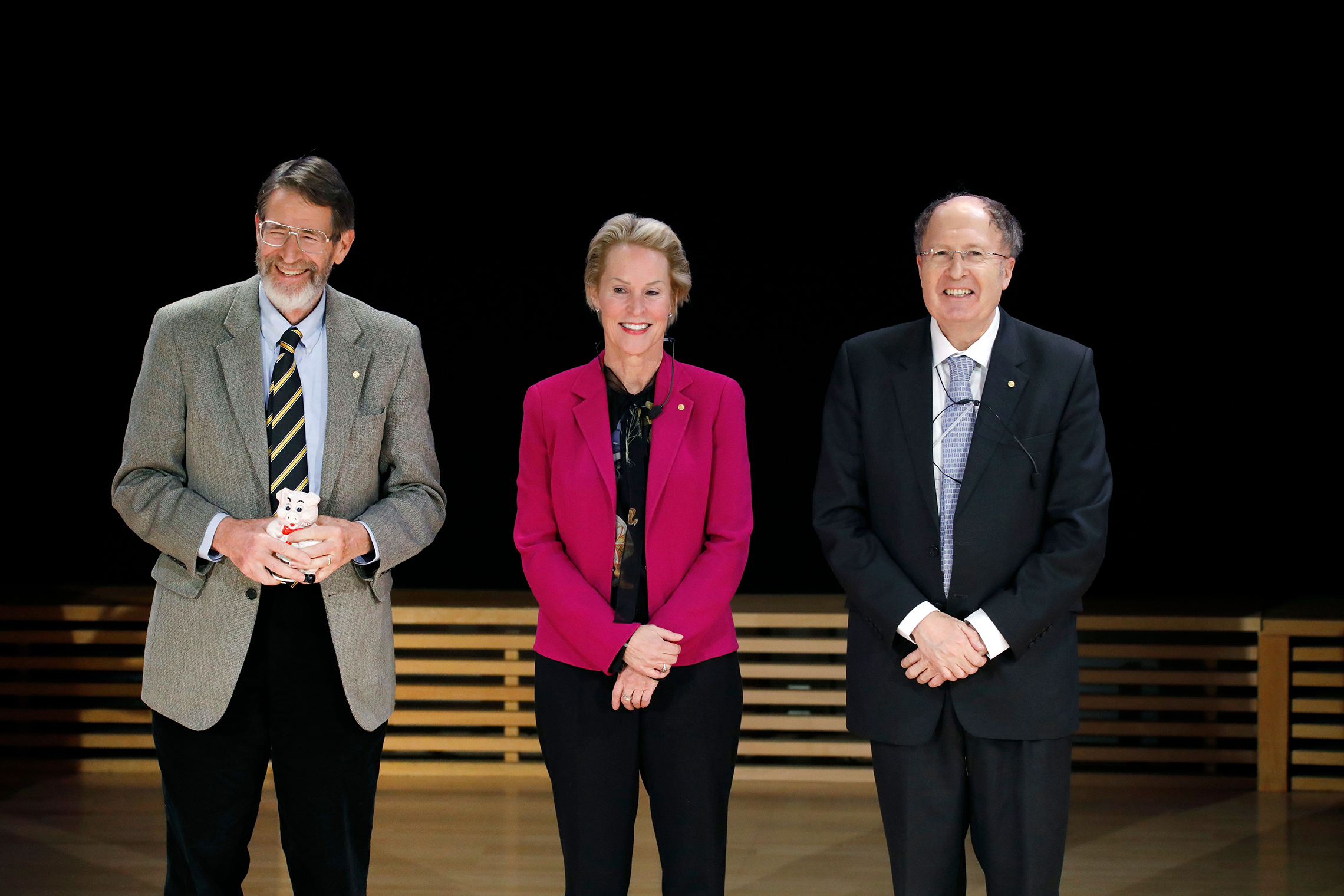
Can you tell us about the day you learned you had won the Nobel Prize?
Frances Arnold: I was sound asleep in a Dallas hotel room at four o’clock in the morning, having just arrived to Dallas to give a talk at a school nearby. The telephone rang, and of course, I thought it was one of my sons with some sort of disaster. I’ve had enough of those that I keep my telephone on at night. And it was this sweet voice from Stockholm saying that — could I hold on for the Nobel Prize Committee? And the Secretary General got on and told me I had been given — I was going to be awarded the Nobel Prize in Chemistry.
And I just hit the ceiling. I said, “Holy…!” I was very excited. I was stunned, and so I had to put the telephone down. They call you back in half an hour for a press conference, and they tell you that you can’t call anybody, so I couldn’t call home, I couldn’t do anything. So I said, “Coffee, shower, coffee, shower.” I took the shower first because I knew it was going to be a very long day, and then I got a cup of coffee, had the press conference, and then I tried to call home. I tried to call my older son, who works at the Jet Propulsion Laboratory, and of course, he doesn’t pick up the phone.
And then I tried to call home where my younger son was, and of course, he doesn’t pick up the phone. So I’m walking around the hotel room just — I couldn’t reach anybody, and I was very excited. And the Nobel Prize Committee, they said, “Oh, you sound so relaxed.” I’m a good faker, I guess. And I said, “Oh my goodness, I’m climbing the walls trying to pretend to sound relaxed” — but I was really very excited.
That 15-year-old who left home, could she have imagined such a thing?
Frances Arnold: I didn’t imagine the future. I keep — people ask me that question. I just imagined the near future, right? “How am I going to get through today and tomorrow — maybe next year?” But I never saw myself as winning the Nobel Prize. That was way out there. I think it’s important to realize, though, that most scientists — not all — we don’t do science for prizes, right? We don’t get paid that much, to work for the rare, really rare thing that a Nobel Prize would do. We start out because we love it every day. And that’s why I became a scientist, finally, after going — after trying many other careers.
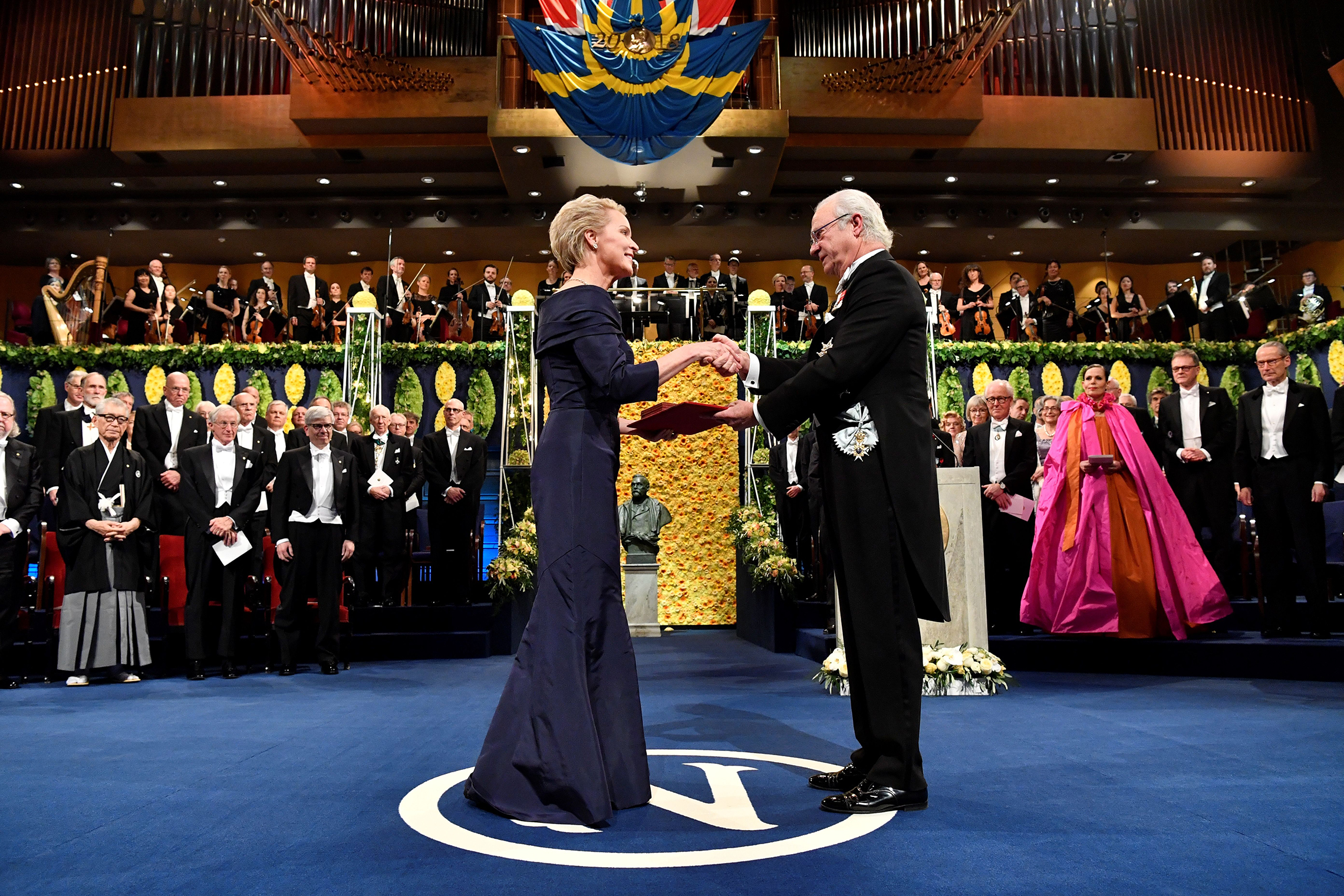
Did you ever think you would win the Nobel Prize?
Frances Arnold: Since I became an engineer, and there’s no Nobel Prize for engineering, it wasn’t on my radar — although I am at Caltech, where ten percent of the faculty has Nobel Prizes. It’s not a rare event around here. I know people who have Nobel Prizes, but it wasn’t really on my radar. And the reason is that I went into science to become a researcher — and I did it at age 30 — because I finally found something that I enjoyed to do every day. We don’t work for prizes, most people. Most scientists work for the joy of inventing and discovering that we do every day. And that’s why I feel so lucky that I have this opportunity to work with young people, to invent things, to do things that I hope will help the planet. And if a prize comes along, that’s nice, too. But that’s just icing on the cake.

